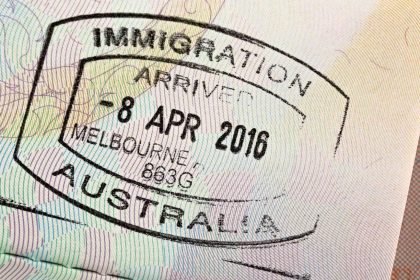If you are interested in studying in Spain, you need to obtain a Spanish study visa. With a Spanish student visa, you will be allowed to study and work part-time. To apply for a study visa of this country, you must meet the conditions that we will discuss in this article. With the necessary documents in hand, you can go to the Spanish embassy and complete the visa application form. If you want an immigration agency to do this for you, you can contact our experts at Estehbanati Immigration Agency to get the necessary advice.

Spain study visa
One of the most popular types of study visas is related to Spain. The reason is that after completing your studies, it will be very easy for you to get residence and work in Europe. Although it has become a bit more difficult to obtain Spanish residency through post-graduation work due to the high unemployment rate, the country is still one of the most popular destinations for students.
The first higher university in Spain was established in the early 13th century, and therefore, in this field, it is among the first countries in the world to value higher education. Spain has several first-class universities in the world, and the educational qualifications of its prestigious universities are highly respected in many parts of the world. It is also possible to issue a Spanish study visa to all applicants, including those under the age of 18. In this case, the applicant’s parents must register and follow up their child’s application through the Spanish Embassy.
Benefits of a Spanish study visa
Among the benefits that studying in Spain brings to students, the following can be mentioned:
Rich culture: Spain has a warm, relaxed and easy-going people. Regardless of the position and occupation, the people of this country are very social and if you accept the culture of the people of this country, you can be welcomed by them.
University tuition fees: Considering the level of education and university facilities, it can be said that university tuition fees in Spain are low. Students with a suitable curriculum vitae can benefit from a variety of Spanish scholarships.
Cost of living: In Spain, all kinds of public and health services, transportation, etc. are lower than in most European countries. The average cost of living in most cities in Spain is around 700-800 dollars. Although some Spanish cities have higher public costs.
Quality of education: The management of the education system in Spain is very strong and has provided an exceptional opportunity for all those interested in education and training. In fact, more than 200,000 international students are studying in Spanish universities, which indicates the high quality of education in this country.
Lifestyle: Student life in Spain is enjoyable. In addition to the good relations between students and professors, Spain also has many attractions that make the experience of living in this country enjoyable for students. In addition, the possibility of working while studying is another positive aspect of higher education in this country.
Favorable climate: due to the geographical location of Spain, the climate is moderate and favorable. The summers of this country are almost hot with little rain and its winters are quite cold. The average temperature is 20 degrees Celsius in summer and 15 degrees in winter. Due to this temperate climate, studying together with living in this beautiful country is not difficult at all.
Spain student visa
Spain student visa has different types:
- Schengen student visa
- Short term student visa
- Long-term student visa
First point: the duration of the Schengen student visa is three months at most. As a result, if students from countries other than the European Union and Switzerland have a study program of less than 90 days, they must apply for this type of student visa. If the applicant student is from the European Union or Switzerland, if his study program is a maximum of 90 days, he does not need to obtain this type of visa.
Second point: Spain’s short-term student visa, known as the D visa, is necessary for study programs lasting between 3 and 6 months. In addition to the complications of obtaining this type of visa, you should know that the short-term student visa cannot be extended. If the duration of the student’s studies is more than 180 days, he must apply for a long-term student visa.
The third point: The long-term student visa of Spain is usually suitable for students who intend to continue their education in bachelor’s or master’s degrees. With this type of visa, you can follow study programs for more than 180 days in Spain. To obtain this type of visa, more time and documents are required. Among other things, proof of financial ability and health insurance services are among the documents you must prepare to receive this type of visa.
With a long-term student visa, you can apply for a Spanish citizenship card known as TIE. Obtaining this residence card is necessary for all international students who come to Spain from non-EU countries.
With the help of this card, you can stay in Spain until the end of your studies. Of course, the TIE residence card is valid for one year and must be renewed at the end of each year. Also, students who have received a long-term student visa must apply for their residence card within one month after entering Spain.
 Types of Spanish study visas
Types of Spanish study visas
According to the previous explanations, there are different types of student or study visa depending on the duration of your study program and it allows you to experience the joy of living in one of the countries of the Schengen zone in addition to studying. If we want to summarize the types of Spanish study visas, we can make do with the following table:
Row | Visa type | Visa duration |
1 | Schengen study visa | 3 months |
2 | Short-term study visa (type D visa) | Between 3 and 6 months |
3 | Long-term study visa | More than 6 months |
Spain study visa conditions
There are several factors that make you as an applicant to study in Spain eligible to receive a study visa of this country or not. The most important point for obtaining a Spanish student visa is the applicant’s country of origin. But apart from this, there are other conditions. Including,
- Acceptance letter from the desired university,
- having physical health through providing a health certificate,
- financial ability along with proof of this content, bank statements,
- Letter of consent from the parents or legal guardian who is known as the person responsible for providing the financial expenses of the applicant.
- university approval letter,
- Paying for the student visa
It is one of the necessary conditions for obtaining a Spanish study visa.
Spain student visa age requirements
According to the study laws of Spain, obtaining a study visa of this country does not have a specific age limit and all people of all ages can apply for this visa. Although at any level of education, the destination university may apply strict measures to people who have a significant age difference. Therefore, it is recommended to all people to be careful in choosing the academic field and the destination university and to check and study the terms and conditions of its acceptance.
Spain study visa fee
The types of expenses that are required to obtain a Spanish study visa include the visa application fee, the interview fee, the visa delivery fee, the travel insurance fee, and the departure fee to Spain.
Cost title | amount (euro) |
Visa application fee | 60 |
Interview fee | 80 |
Visa delivery fee | 15 |
The cost of travel insurance | 50 |
Travel costs | Depending on the country of origin and method of travel |
In addition, you should also consider the cost of living in the first months of arrival in Spain, which usually includes the cost of accommodation, food, transportation, buying books and other things. Obviously, these amounts may change according to the laws and regulations of Spain, the year of the student visa application and many other things.
Spanish study companion visa
If the applicant has companions, if his study visa is accepted, his companions can stay with him in Spain. For this purpose, the applicant student must introduce his/her spouse or children after applying to the destination university in Spain. The accompanying persons of the applicant must submit all the necessary documents to receive the study accompanying visa.
Some of the documents required to issue a student accompanying visa are:
- Passport
- Official photo
- marriage certificate
- Birth certificates of children
- Proof of financial ability
After submitting the documents, if necessary, interviews will be conducted with the accompanying persons and the result will be announced later. After the approval of the study companion visa, the applicant’s companions will be able to join the applicant and stay with him in the territory of Spain.
 Spanish Student Accompanying Visa
Spanish Student Accompanying Visa
As we explained above, the spouse and children of the person applying to study in Spain can live in Spain together with the student applying for the study visa by submitting the documents and receiving the accompanying student visa. You should note that the applicant’s children must be under 18 years old. Also, the first-class members of the applicant may want to join him, in which case, they should apply for a Spanish joining visa. The financial ability of accompanying persons is mandatory for all the above cases. The amount of financing for each month will be around 350 to 550 euros. In general, having an amount of around 8,000 euros in your account can confirm your financial ability. This issue may be different depending on different universities and the amount they want regarding your financial ability may be more or less.
It should be noted that the parents of the applicant or his/her spouse, if their age is over 65 years and their financial dependence on the applicant can be proven, can use the accompanying student visa. Proof of the applicant’s financial ability to accompany his parents or his legal spouse is checked through the financial circulation of the applicant’s account during the previous months, and if approved, it is possible to apply for an accompanying visa for them.
The people who can join the applicant through the accompanying student visa are:
- Spouse
- Unmarried and dependent children of the applicant
- Adopted children under the age of 18, provided they are financially dependent
- All people under the supervision of the applicant
- Parents of the applicant or his spouse with at least 65 years of age
The next important point is that if you have been able to obtain the citizenship of this country by spending 10 years of living in Spain, you have this lease that by proving your financial ability, other family members such as nephews, nieces, Invite uncles, aunts, uncles, grandchildren and others to this country through the Spain companion visa.
Spanish Student Spouse Visa
The spouse of the applicant can join the applicant if he has an official and legal marriage certificate. This issue is possible through the issuance of a student’s spouse visa, which is a type of accompanying student visa. Of course, legal marriage in Spain does not only apply to heterosexuals, and homosexuals can also benefit from the facilities of this visa if they prove that their marriage is legal.
Procedures for obtaining a Spanish study visa
It is necessary to go through the correct and principled steps of obtaining a Spanish study visa; Because any mistake in this direction may cause you to lose your chance to successfully obtain a Spanish study visa. The steps required to obtain a study visa in Spain are as follows:
Initial acceptance by the destination university
At this stage, one of the universities in Spain accepts you as an eligible applicant to study in that university.
Completing the visa application form
According to the admission requirements of the destination university, the applicant will be required to complete the study visa application form.
Preparing the required documents
According to the request of the destination university, all the documents required for the approval of the study visa must be collected by the applicant. Among these documents are a passport with a specified validity period, a photograph, all academic documents and transcripts, proof of financial ability, and the health certificate of the applicant.
Payment of related fees
At this stage, the necessary fees for the application and issuance of the Spanish study visa, which is issued electronically, are paid by the applicant.
Appointment of the embassy
After collecting the documents, you must register to deliver the documents to the Spanish Embassy.
Schedule an interview
At this stage, based on the time set by the embassy, you will go there and participate in a face-to-face interview with the embassy officials.
Issuance of study visa
If all steps are approved, your student visa will be issued by the Spanish embassy.
Spanish study visa documents
Above, we explained the steps of obtaining a student visa from the embassy, and one of these steps is collecting the necessary documents. All the documents you need to obtain a study visa in Spain will be as follows:
- The Spanish study visa form that must be completed in printed form;
- Two new color photos with a white or uniform and clear background;
- Original and copy of passport with validity date;
- driver’s license or student card;
- The admission documents of the destination university include degree level, study program, duration of study including start and end time, contact information including address and phone number, all of which must be in Spanish.
- Medical certificate of health in original and copy dated three months before the application;
- Certificate of no bad background related to the three months prior to the application;
- Certificate of financial ability related to student expenses such as accommodation and travel expenses to the applicant’s country of origin (the amount of financial ability should be at least 700 US dollars per month)
 Spain study visa issuance period
Spain study visa issuance period
From the time of applying for a study visa to its final issuance, it will take about 1 to 3 working months. This period of time depends on the workload of the embassy. In some cases, the issuance of a study visa in Spain happens very quickly. Therefore, to avoid wasting time and losing the opportunity to register and such, it is better to apply for your study visa as soon as possible, collect the required documents quickly and wait for the appointment of the interview.
Spain study visa without language certificate
Dear Iranian students, they do not need a special language certificate to study in this country, but without having a language certificate, you will not be successful in attending classes. Therefore, it is vital to be literate in the teaching language of the destination university.
In general, having valid Spanish language certificates such as DELE, CELU or SIELE, which indicate an intermediate to high language level, can help you a lot. Some universities teach their courses in Spanish. Others may teach their courses in English. Therefore, you must be familiar with this language. For example, to study medicine in Spain, you need sufficient knowledge of your university language. Ultimately, it is the destination university that determines what language level you need. Do you need to have a language certificate or not? Therefore, through the education unit of the destination university, you can make sure what level of language you need for optimal education at your destination university.
Spanish study visa rejection
If some of the necessary conditions for obtaining a study visa are not provided, you may be rejected for a study visa.
These conditions usually occur in the area of documents or certificates required to prove some facts, such as the applicant’s financial ability or health. In the following, we introduce some reasons for the rejection of a study visa in Spain:
- Lack of financial resources
- Defects in submitted documents or inaccuracy of additional information
- Inappropriate interview at the embassy office
- Failure to convince the Spanish authorities of the applicant’s purpose for studying
We said all this to finally tell you that in order to avoid rejection, you must prepare your documents correctly and with all the requested details, honestly state all the necessary information in the face-to-face interview, and clearly define the purpose of your stay in Spain. do.
Converting a study visa to work in Spain
It is possible to work for students of Spanish universities during their studies. In fact, the Spanish study visa allows students to work for up to 20 hours per week. It is not possible to work full time while studying in Spain. In addition, it is necessary to obtain a work permit from your Spanish employer through the Ministry of Foreign Affairs. However, students have the possibility to participate in the study courses without pay just by providing their student number or ID.
Converting a Spanish study visa to a permanent residence
Students who complete their studies in Spain can obtain Spanish residency under certain conditions.
In fact, by obtaining a work visa, you can finally obtain a permanent residence in Spain. The methods that make this possible are:
- Visa to look for work in Spain
- Receive a job offer
- Spain entrepreneur visa
If you stay temporarily in Spain for 5 years, you can apply for permanent residence in this country. In addition, by spending 10 years of intermittent or continuous residence in this country, you will be able to obtain Spanish citizenship.
Spain study visa advice
If you intend to study in one of the universities in Spain, you will need to obtain a Spanish study visa.
Although you can do all the steps related to obtaining a visa personally, using the experience of immigration agencies can save you a lot of time and money. In fact, you can easily experience the best way to obtain a study visa in Spain by getting advice from the experts of Esthebanati Immigration Institute.
If you still don’t know which Spanish university is suitable for your studies, you can get help from the Spanish study counseling service. Some of the most prestigious universities in Spain are:
- Business school affiliated with the European Union
- Pompeo Fabra University
- Jain University
- Dostoy University of Spain
- IED Institute (related to design)
- TBS Business Center
Due to the years of experience in obtaining all kinds of study, work, investment, etc. visas in different countries, the consultants of Estehbanati Immigration Institute can offer you the shortest way for a successful educational migration to Spain.
Contact us now to schedule a consultation.
 Spain study visa lawyer
Spain study visa lawyer
To ensure that you get your study visa, it is best to entrust your work to a study immigration lawyer. In this way, all matters related to obtaining your student visa, from initial consultation to guidance on collecting documents, scheduling embassy appointments, and all administrative correspondence, etc., are done by him to ensure that all work related to applying for and issuing a student visa It will be done in the best possible way and as soon as possible. The lawyers of Estehbanati Immigration Institute with years of effective and active experience in the field of immigration to Spain, can help you in the field of successfully obtaining a study visa in Spain.
Just contact our experts to get the necessary advice and guidance.
Frequently Asked Questions
1- How many types of Spanish student visa are there?
Spain study visas are issued in three types: Schengen visa, short-term visa and long-term visa.
2- What is the Spanish accompanying student visa?
With the help of accompanying student visa, it is possible to accompany the applicant’s spouse, children under the age of 18 and some other family members.
3- How long does it take to issue a study visa in Spain?
Due to the workload of the Spanish Embassy, the issuance of a study visa may take between 1 and 3 months.
4- How much is the cost of issuing a Spanish study visa?
In general, issuing a study visa for Spain costs about 300 to 600 euros.
RCO NEWS
















